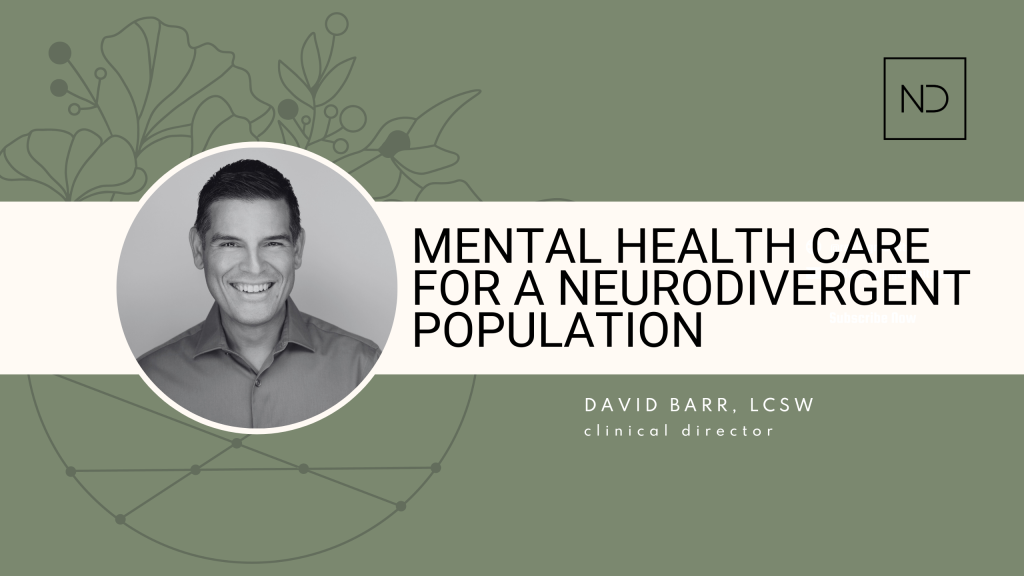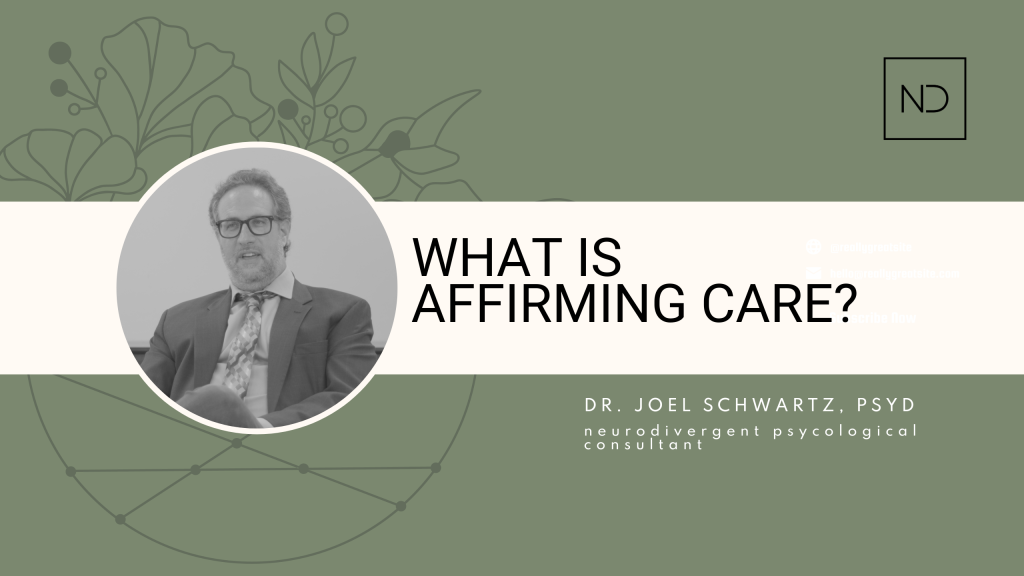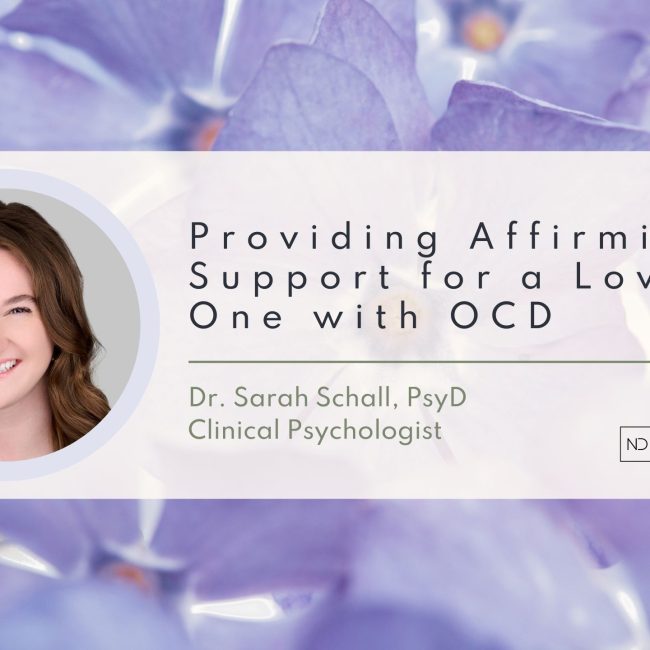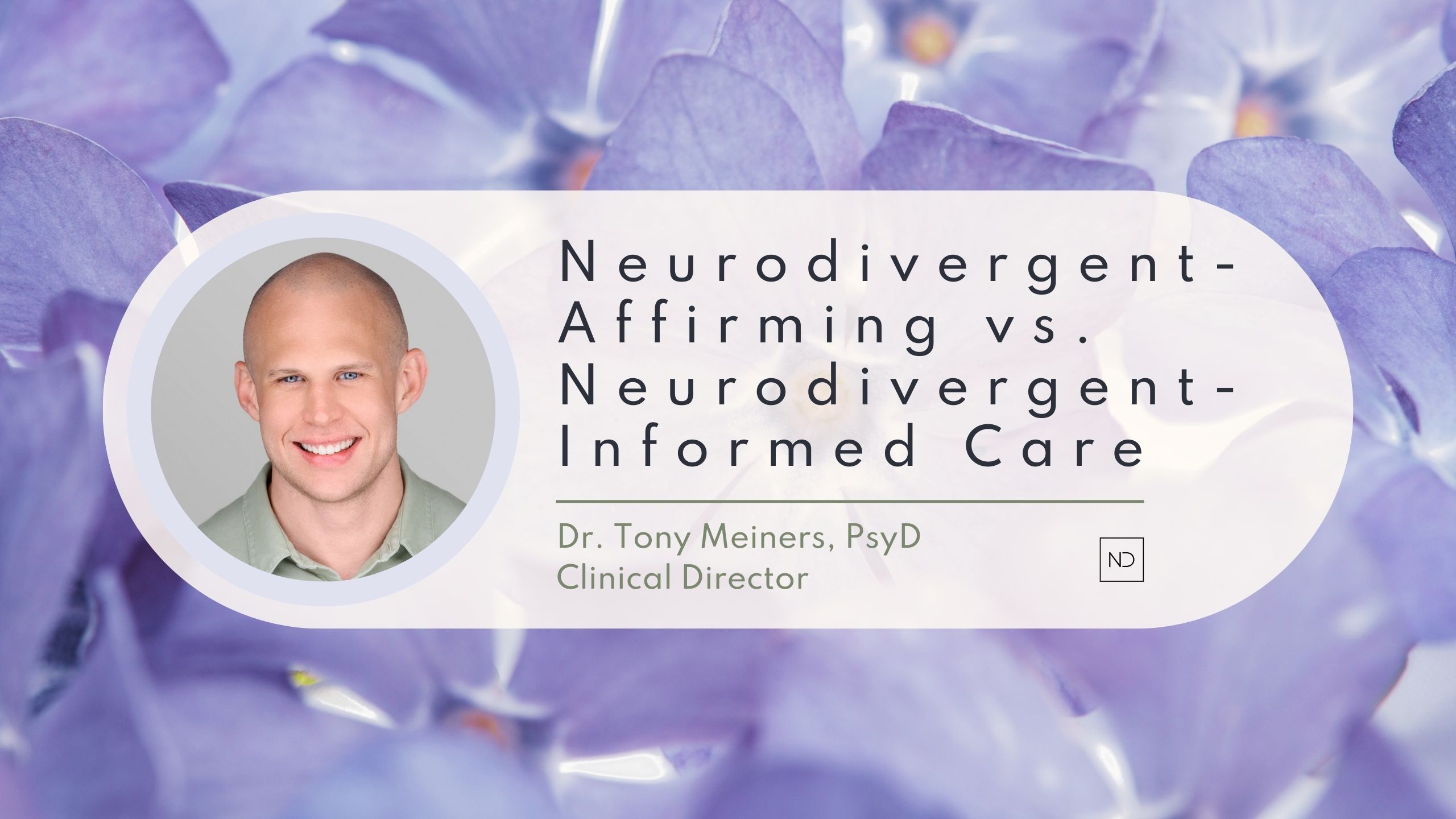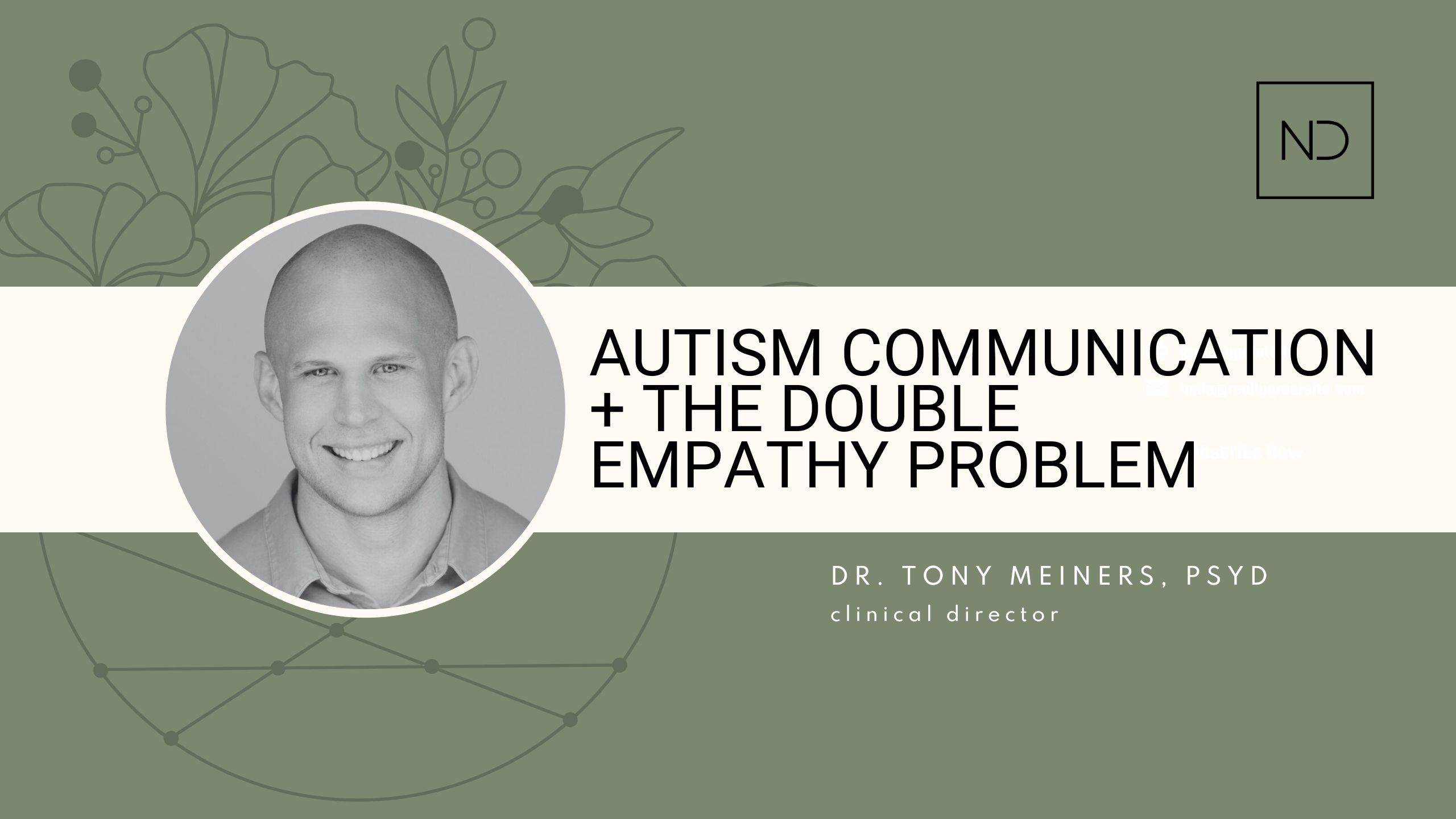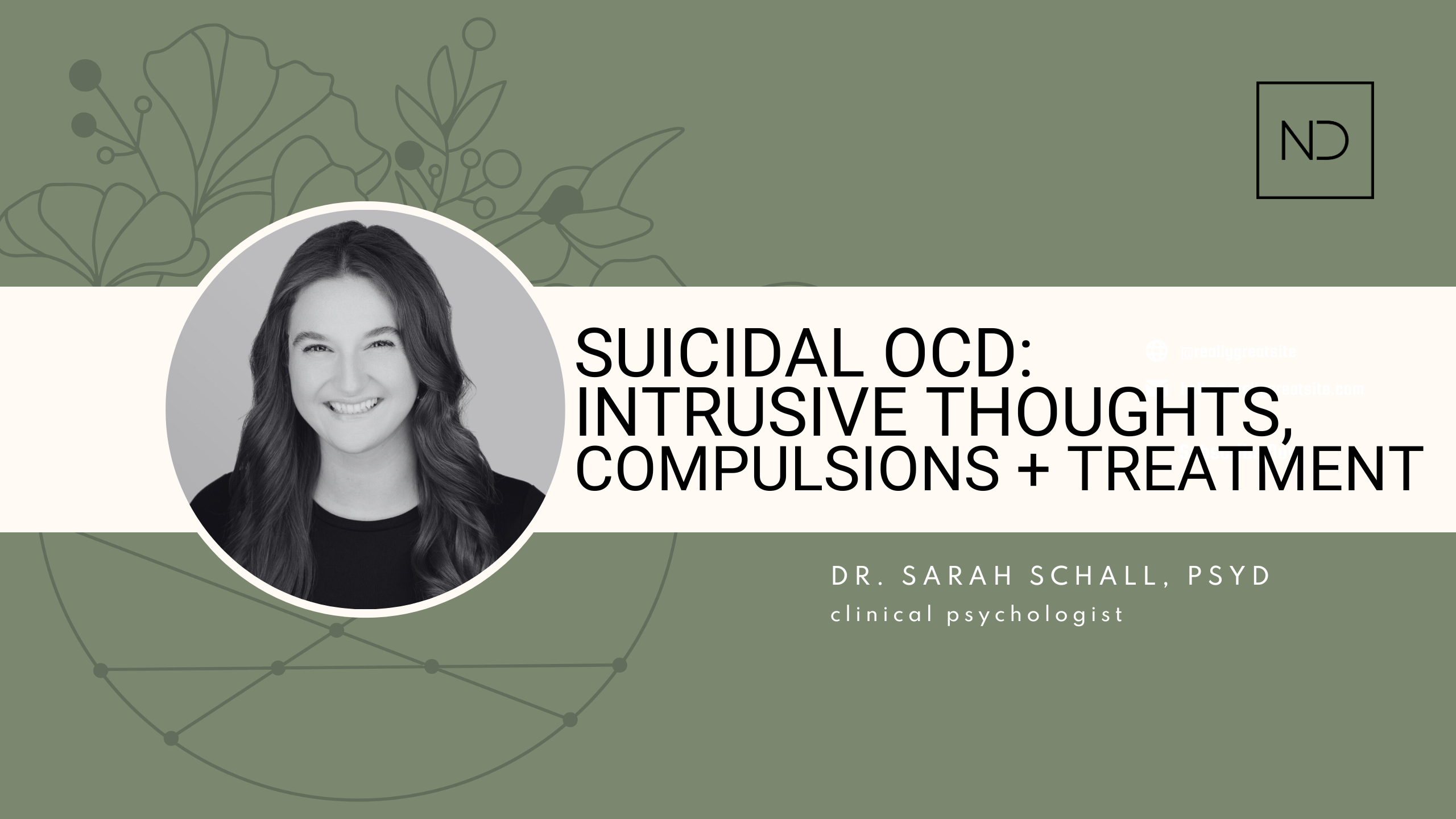
SUICIDAL OCD: Intrusive Thoughts, Compulsions + Treatment
ATTENTION: IF YOU OR A LOVED ONE ARE STRUGGLING WITH SUICIDAL THOUGHTS PLEASE SEEK PROFESSIONAL SUPPORT NOW. DIAL 988 FOR THE SUICIDE AND CRISIS LIFELINE.
Dr. Sarah Schall, PsyD explains how suicidal OCD is a theme of OCD that many people are not aware of. It is different from suicidal ideation, as it involves intrusive thoughts of killing oneself but with no actual desire to harm oneself. Individuals with suicidal OCD often go to great lengths to avoid any potential harm, such as avoiding dangerous objects or situations. However, seeking help or going to the hospital can actually reinforce the OCD. It is important to differentiate suicidal OCD from other forms of suicidal thoughts, as the correct treatment can help individuals live a fulfilling life despite the presence of these thoughts.
INTERVIEW
Filmed with Dr. Sarah Schall, PsyD | Clinical Psychologist
SUICIDAL OCD: INTRUSIVE THOUGHTS, COMPULSIONS + TREATMENT
I found that a lot of people don’t know that there is actually a theme of OCD called suicidal OCD, and it is different than suicidal ideation. So suicidal ideation often you see is someone that has thoughts of dying, killing themselves, and it could be passive, it could be active, right? That’s very scary for a lot of people to hear when their loved one is experiencing that. Suicidal OCD on the other hand can look very similar, but it is very different. What I mean by that is someone with suicidal OCD will have intrusive thoughts of killing themselves, and intrusive is the important word in this. So oftentimes it causes significant distress. They do not want to kill themselves or harm themselves, and what you’ll see is that they will do actually everything in their power to avoid the potential of harming themselves. And I know that that can sound like, well, how is there a difference? So we see intrusive thoughts of harming oneself, killing oneself with suicidal OCD. And compulsions might be…
- “I stay away from everything that’s dangerous.”
- “I’m not going to cut using knives”
- “I’m not going to drive my car because what if I lose control?”
- “Maybe I need to go to the hospital and lock myself up because what if I hurt myself?”
The difference is that we see society react of like, yeah, you should go to the hospital if you’re having any type of thoughts. But with someone with suicidal OCD, going to the hospital is actually a huge compulsion. It reinforces that I can’t trust my brain, I am in danger. And what happens is that people don’t realize it’s suicidal OCD and the interventions we use are actually reinforcing of the OCD. So when people come in to see me and they’re telling me about the most horrific thoughts of harming themselves or others, and they expect me to be horrified too and be like, okay, let’s go to the hospital. I found that it’s super normalizing when we parse out that it is suicidal OCD, because they have no idea that other people experience these thoughts. And when you get the correct treatment, it’s not necessarily that the thoughts go away, but again, or they’re able to live a valued life.
Do you have a question?
Send us a message


